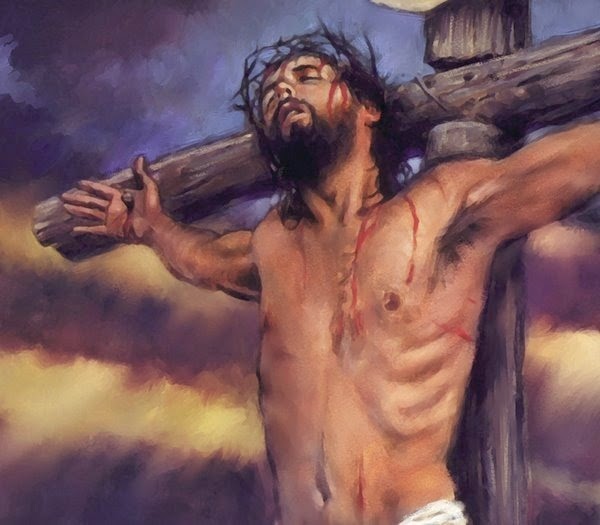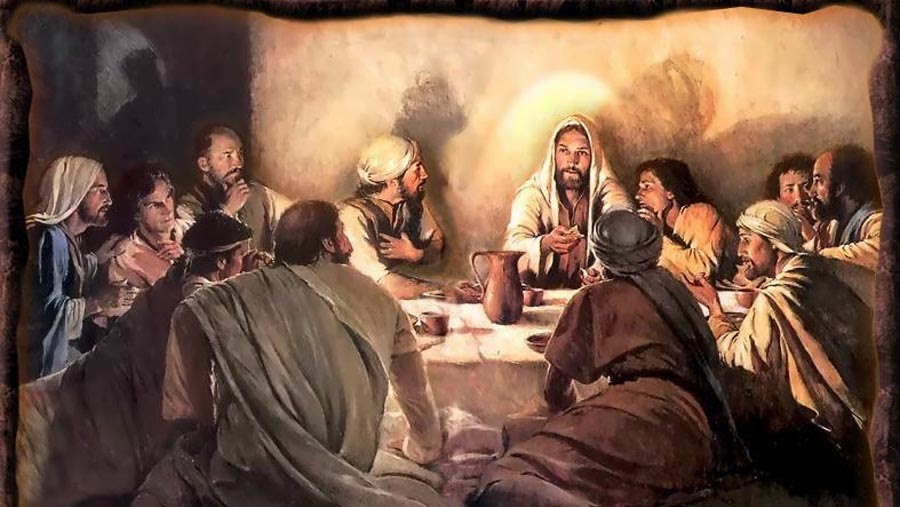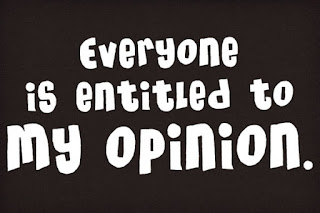As I stopped in Wal-Mart today to pick up a few items,
the employees were discussing the 2016 Presidential
election. Later, when I drove my car into the church parking lot, some others were doing the same. Facebook is loaded with all sorts of
reactions—from rejoicing, to tears, to uncertainty, to fear, to whatever. This unprecedented election is certainly
being discussed by just about everyone I know.
This evening’s news also showed protests in the streets in some cities.
Although there are those who
have already criticized me and told
me that I need to be silent as a priest
for having an opinion on political matters, political parties and elections, I
suspect that they do not grasp the role and charge of the Church and of a
priest to preach the Gospel in season and out of season. (See 2 Tm. 4: 1-5) This may include pointing out wrongdoing and injustice
within any and all government structures.
Christ might not have been a political activist—being, rather, most
critical of the religious leaders of His time.
However, his death on the cross nonetheless
was at the hands of an oppressive Roman government.
[As a brief aside, I wonder if
critics of vocal priests might have said the same to Pope St. John Paul II as he stood up against communism in Poland, being
a force and inspiration for the Solidarity movement. Or would they criticize Blessed Fr. Jerzy Popieluszko, a priest
brutally killed by the Polish secret police for being outspoken against the same
communist government at the time of Solidarity. If my memory serves me right, approximately
twelve thousand priests died during the Holocaust—many for being a voice of resistance against the cruel Nazis. I also
think of Sts. Thomas More and John Fisher, and other Martyrs of England and Whales unwilling to submit to the king.
While I can write volumes giving such examples of opposition to unjust
governments and their practices, this is not the primary point of my
commentary.]
We, as a nation, have been
through a rather bitter, definitely unedifying, hard-fought contest for US President. People have taken sides and, at times,
demonized opponents, and shown great contempt and anger towards those who do
not share like opinions. I have heard
how people are fearful for the future, motivated to become activists, frustrated
or even paralyzed. Others are praising
the new president like a messiah. I
try to avoid any of these attitudes.
Here’s where I share my priestly insight: politics is a thing for this
world. Christian believers are urged
to set your hearts on things that are
above. (See Col. 3: 1-4) God is
still in charge. He always has been and
will be. I hope we realized that one
of the two major candidates was going to win this election. I did not endorse either of the two or
any other on the ballot. I was, however,
highly critical about what one
party/candidate stood for, primarily because I am a strong, openly-declared
opponent of abortion. I think the lives of 60 million unborn
children who have been aborted in the US since Roe v. Wade deserve the additional voice that I can give (that they
never had) to help stop the madness. (Maybe
my voice and those like me could influence a move in another direction
respecting the life of the unborn, just like Sen. Bernie Sanders and his
supporters advocated for and
seemingly achieved various positions in their party platform more to their
liking.)
If we have a deep faith in Jesus, then we can be assured
that His will is going to be done. Maybe
not immediately, maybe not in the way I/we will understand. What I see as tragic are attitudes where politics
is more heavily weighted in people’s lives—and I am especially addressing Catholics and Christians here—than their faith. Faith
can motivate one to take a more active role in politics, but politics is never,
ever more important than faith in Jesus Christ. When activist priests stood up against
oppressive governments and their policies, it was certainly faith in Jesus Christ, faith in an afterlife, faith in the ultimate power of God,
motivating and sustaining them.
We should teach our families,
our children and others that no matter what happens, Jesus is still with us. According
to our faith, Jesus is with us in the
Most Blessed Sacrament, in the Sacred Scriptures, where two or three gather in His name (the
Church), and in the person of the ordained priest. It doesn’t matter in the end who is president, or king, or emperor. Nations have come and gone. Isn’t it strange and assuring that the Church
has survived all governments (corrupt, oppressive and otherwise) since
33 AD?
I have no grandiose
expectations that President Donald Trump or any other after him will solve all
of our nation’s problems. He can’t because he’s not God. I will be critical of him if he doesn’t
support legislation respecting life in the womb, if he doesn’t protect religious
freedom and its expression, if he advocates same-sex marriage, etc. At least his party did not officially adopt
policies in their platform that are blatantly against non-negotiable teachings of the
Catholic Church (abortion, same-sex marriage).
I hope his administration doesn’t want the Little Sisters of the Poor to violate their religious beliefs.
Our nation, in the end, will
not change in the most beneficial ways for our society, unless we change. Maybe I
will sound a little more like my Protestant brothers and sisters here than the ultra-conservative, Catholic priest, as
I have sometimes been erroneously labeled.
(In reality, I am far from that.
I just try to be faithful to what the Church teaches doctrinally.) My point: Jesus has to be in my heart and soul.
I have to live and breathe Him. I have to give my will and my life to Him.
I need a personal relationship with this most-loving Person of the Trinity. Too many baptized just go through the
motions, pick and choose what they want to believe, and never know the peace
and joy that comes from being a faithful disciple of the Lord. Pope Emeritus Benedict XVI called the half-hearted practical atheists. Their faith
never has an effect on the way they live their lives. Pope St. John Paul II called for a New Evangelization
to bring back baptized Catholics/Christians who no longer practice their faith.
To those who are baptized
Catholics, I say this boldly: BE Catholics! Know and support your Church and its
teachings. Faithfully attend Mass. If your life is not right with God, take the
steps necessary to make it so.
Confession is a good start and a wonderful grace-filled habit to get
into. The Jubilee Year of Mercy, emphasizing the merciful love of God, is nearing its end (Nov. 20, 2016).
Politics is sometimes interesting and occasionally bizarre. (I never thought I would be saying
President-elect Trump.) However, knowing and living the Catholic faith
is life-giving, hope-providing and charity-enabling.
No political-pabulum of a
slogan (Make America Great Again or Stronger Together) is, in and of itself,
going to make anything happen.
Only God can produce the result He chooses by His Word: Let there be light . . . Let us make man
. . . . . Jesus, the Son of God, said: This is My Body. And it becomes so.
If we want things to happen,
real change to occur, then it is only through God’s
Word and in cooperation with God’s Will
that will make it so.
O beloved Christian, O Child of God, have faith and trust in Jesus and not some politician.
Jesus has no term limits as messiah or God.
Jesus has no term limits as messiah or God.









